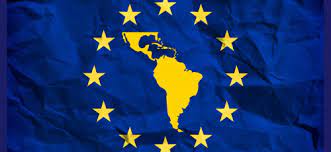
04 Nov LATIN AMERICA: AN AMBIGUOUS PARTNER FOR THE EUROPEAN UNION
The European Union’s Foreing Policy chief, Josep Borrell, said that 2023 should be “the year of Latin America” in Europe, and a summit meeting between the leaders of both regions held in Brussels relaunched a dialogue that had been suspended since 2015.
Why did this dialogue stall and why is it reviving now? What place does Latin America have in the EU’s foreign relations? What are the drivers and structure of the relationship?
This course will introduce the students to Latin American politics and international relations. It will then revise the structure and main policy areas of this region’s relations with the European Union, focusing on current opportunities and challenges, in the areas of political dialogue, the environment and economic exchanges.
LORENA RUANO
Lorena Ruano is Professor of International Relations at CIDE (Centro de Investigación y Docencia Económicas), Mexico City, since 2002. Her research and teaching focus on European integration and relations between Europe and Latin America. She graduated from El Colegio de México and Oxford University, where she got her M.Phil. (St Antony’s) and D. Phil (Nuffield) in International Relations. She was Jean Monnet Fellow at the Robert Schumann Centre for Advanced Studies at the EUI (Italy) in 2001-2. She holds a Jean Monnet Chair since 2007. In 2017 she was Senior Associate Analyst at the European Union Institute for Security Studies (EUISS) (France). In 2022-2023 she was Visiting Researcher at the Fundación Carolina, Madrid. She is currently Associate Professor at Carlos III University in Madrid, where she teaches the courses Supranational Integration Processes and Emerging Countries.
You can access most of her publications through her profile on Academia.edu
Her latest publications related to the course include:
– Lorena Ruano (2023), “La reactivación de la diplomacia climática entre la UE y ALC”, Esglobal.org [october 3]
– Lorena Ruano (2023), “Visiones latinoamericanas de la Unión Europea como potencia normativa”, Documentos de trabajo n°86, Madrid, Fundación Carolina. You can see a video summarizing the main findings here (in Spanish).
– Lorena Ruano Gómez (2023), “Les relations de l’Amérique latine et des Caraïbes avec l’UE aujourd’hui : éloignement et diversité”, Annuaire Francais de Relations Internationales 2023, vol. XXIV, Éditions Panthéon-Assas, pp. 417-432.
– Lorena Ruano (2023), “El diálogo político birregional verde UE-CELAC”, Documentos de trabajo n°85, Madrid, Fundación Carolina.

Skills
At the end of this course, students will:
Identify the main features of Latin American political systems, regional integration processes and international relations.
Become acquainted with the main tensions and drivers of the European Union’s policy towards Latin America.
Practice their presentation skills and critical thinking, working in a group, as well as their ability to summarize information and present it orally.
Mobilize their knowledge from comparative politics, international relations and economics through a policy based approach to the bi-regional relationship between the European Union and Latin America.
Schedule
Which dates?
06 March 2025
13 March 2025
20 March 2025
27 March 2025
3 April 2025
10 April 2025
What day?
Thursday
What time?
15:30-17:00
